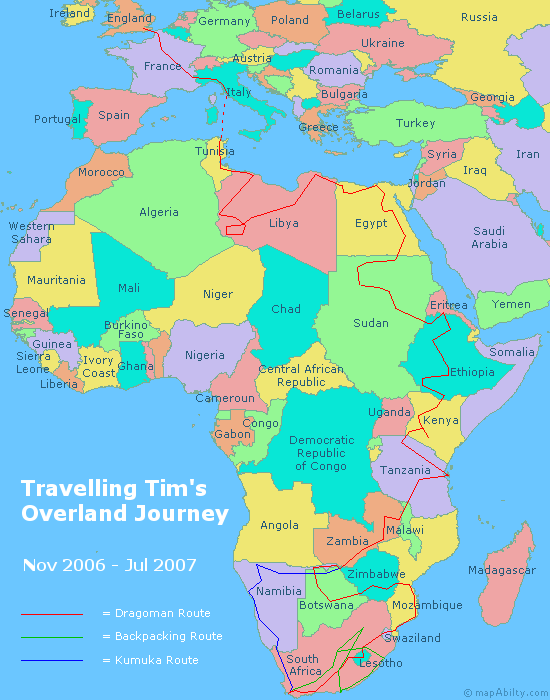
devon4Africa: Luxury train travel in South Africahttps://blogger.googleusercontent.com/img/b/R29vZ2xl/AVvXsEjEC0315HhW6E6BAIyjG-32l0e5bL-0P26n6u00AL_dv_jh3Mdc9WFp00rCm0xbyrYhpZFgtj4I9ViYLZma1xgRjpGPqWc6Ke-f_8QvuMCKviAV5qDCVs5ZcX5uvXbG8cvU3cMMJD6YI3SI/s1600/F+blue+train.jpgtravel africa
Travel is the movement of folks between relatively distant geographical locations, and can require travel by foot, bi-cycle, automobile, train, boat, aircraft, or other means, with or without luggage, and can be one way or round trip. Traveling can also include relatively short stays between successive movements.
The origin of the word "travel" is most likely lost to background. The term "travel" may originate from the Aged French word travail. In accordance to the Merriam Webster dictionary, the first known use of the term travel is at the fourteenth century. Additionally, it states that the word originates from Center English travailen, travelen (which means to torment, labor, strive, journey) and earlier from Old French travailler (which means to work strenuously, toil). In The english language we still occasionally use what travail and travails, which mean struggle. According to Simon Winchester in his book The Best Travelers' Tales (2004), the words travel and travail both discuss an even more historic root: a Roman device of torture called the tripalium (in Latin it means "three stakes", as in to impale). This particular link reflects the extreme difficulty of travel in olden days. Also note the torturous connotation of the word "travailler. " Nowadays, travel may or might not exactly be much easier depending after the destination you choose (i. e., Mt. Everest, the Amazon rainforest), how you plan to get there (tour bus, cruise trip ship, or oxcart), and whether or not you decide to "rough it (see extreme tourism and adventure travel). "There's a huge difference between simply being a tourist and as being a true world traveler, inches notes travel writer Michael Kasum. This is, however, a contested distinction as academic work on the cultures and sociology of travel has noted.
Reasons for traveling include recreation, tourism or vacationing, research travel for the accumulating of information, for vacation to visit people, offer travel for charity, immigration to commence life anywhere else, religious pilgrimages and mission trips, business travel, trade, commuting, and other reasons, such concerning obtain health care or waging or fleeing war or for the enjoyment of traveling. Travel may occur by human-powered transport such as walking or riding a bicycle, or with vehicles, such as public transport, vehicles, trains and airplanes.
Motives traveling include:
- pleasure
- leisure
- discovery and exploration
- getting to know other cultures
- taking personal time for building interpersonal relationships
Travel may be local, regional, national (domestic) or international. In some countries, non-local inner travel may require an internal passport, while international travel typically requires a passport and visa. The trip are often part of a round-trip, which is a particular type of travel where a person moves from one location to another and returns.
Once difficult, slow and dangerous, travel has tended to become easier, quicker, plus more frivolous in the course of history. The evolution of technology such as horse add and bullet trains has contributed to this trend.
Government bodies emphasize the value of taking precautions to ensure travel safety. When traveling in foreign countries, the odds favor a safe and incident-free vacation, however, travelers can be subject to difficulties, crime and violence. Some protection considerations include being aware of one's surroundings, staying away from being the target of a crime, leaving copies of the passport and itinerary information with trusted people, obtaining medical insurance valid in the country being visited and registering with a person's national embassy when arriving in a foreign country. Many countries do not recognize drivers' licenses from other countries; however most countries take international driving permits. Auto insurance policies issued in a person's own country are often invalid in foreign nations, plus its often a need to obtain non permanent car insurance valid in the country being visited. It is also a good idea to get oriented with the driving-rules and -regulations of location countries. Wearing a seats belt is highly a good idea for safety reasons; many countries have penalties for breaking seatbelt laws.
Free Picture gt; Travel Beautiful scenery of South Africa
Exotic Travel
Your own South Africa travel adventure could veer off in any set of
Living My Life Like It39;s Golden: A Black History Moment
 https://blogger.googleusercontent.com/img/b/R29vZ2xl/AVvXsEjoWQU1sKFRnn5ZjGgcN7NQujUotarbz-l_yRTSa5WvjF-Sdw0GpFzCUhnyzg2li7xSguTDWw9CUOKYSFpV7SUEn9z7pTV9M_lrEs7WNATaOQus9PiCJnE4AxEwkWtYeqgnZx58oNnBEvE/s1600/africa_travel_map2.gif
https://blogger.googleusercontent.com/img/b/R29vZ2xl/AVvXsEjoWQU1sKFRnn5ZjGgcN7NQujUotarbz-l_yRTSa5WvjF-Sdw0GpFzCUhnyzg2li7xSguTDWw9CUOKYSFpV7SUEn9z7pTV9M_lrEs7WNATaOQus9PiCJnE4AxEwkWtYeqgnZx58oNnBEvE/s1600/africa_travel_map2.gifOIP.M9bdb1410d56b285e848b780a6d0134eeo0
93CC1889C2A0031B97D3183B208539279F600BDCEhttp://devon4africablog.blogspot.com/2012/07/luxury-train-travel-in-south-africa.html
Embed Our image to your website
ThumbnailEmbed Our image to a Forum
ThumbnailImagedevon4africablog.blogspot.com









